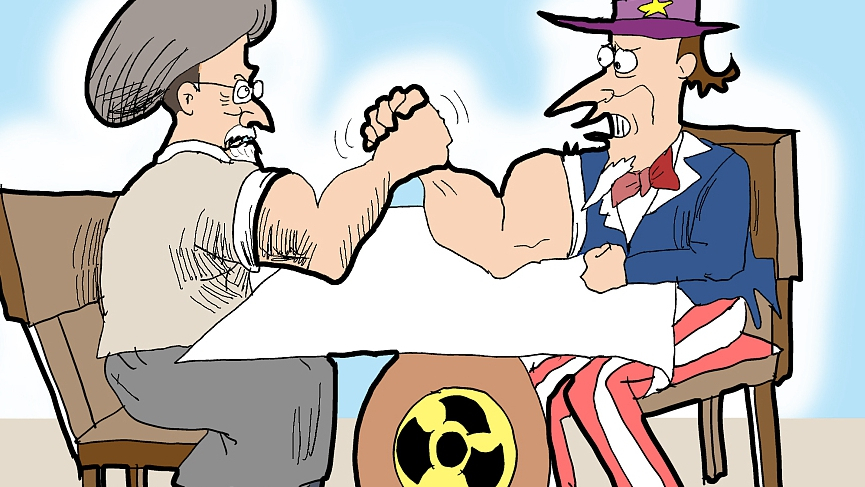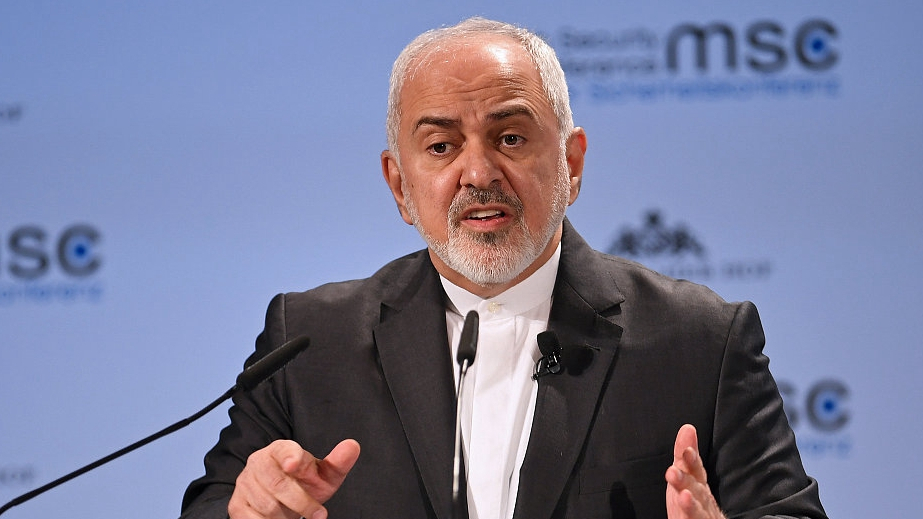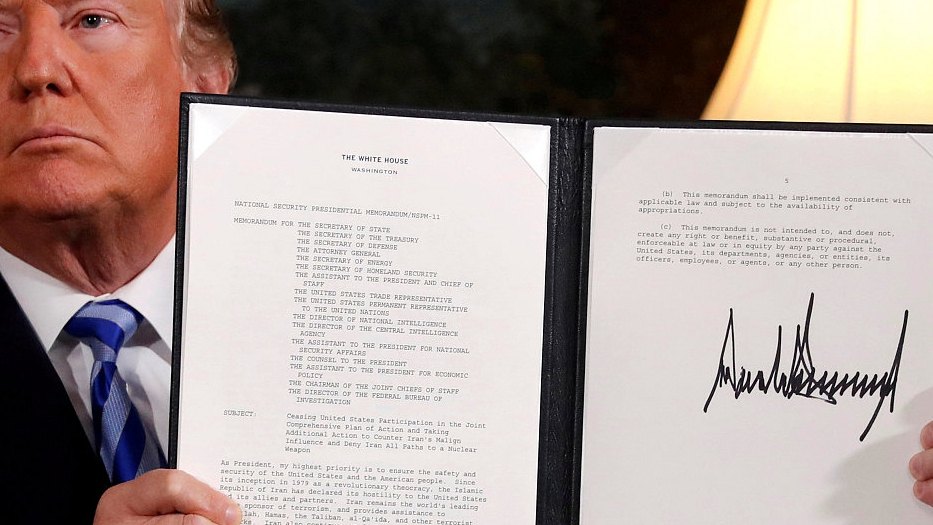
Opinion
10:23, 10-May-2019
Are U.S. and Iran on course for head-on military collision?
Bobby Naderi

Editor's note: Bobby Naderi is a journalist, current affairs commentator, documentary filmmaker and member of the Writers Guild of Great Britain. The article reflects the author's opinions, and not necessarily the views of CGTN.
Although President Donald Trump has threatened more actions against Iran "unless it fundamentally alters its conduct," indications are that the U.S. and Iran are not on a collision course.
Iran is simply revising its civilian nuclear activities and not leaving the 2015 nuclear deal it signed with world powers. It is not turning its back on diplomacy with Washington either. On the other hand, the U.S. is happily damaging the Iranian economy and goodwill gestures with new sanctions on all exports of oil and industrial metals (iron, steel, aluminum, copper).
One is loath to believe that the timing makes sense, as both sides want to double down on "maximum pressure" and "strategic patience" in a counterproductive impasse that they know has benefited no one globally.
Buildup for drama
The U.S. military buildup in the Persian Gulf in recent days was done for bluffing. Trump's national security adviser John Bolton can continue to "mischaracterize the intelligence" and spread the myth of Iranian aggression and threat – that Iran is planning a sneak attack on the United States. But he cannot validate the claims, as there have been no Iranian missteps to justify this week's military buildup.

Iran's Foreign Minister Mohammad Javad Zarif speaks during the annual Munich Security Conference in Munich, Germany, February 17, 2019. /VCG Photo
Iran's Foreign Minister Mohammad Javad Zarif speaks during the annual Munich Security Conference in Munich, Germany, February 17, 2019. /VCG Photo
In reality, Iran is not taking the military buildup seriously, and certainly is not preparing for asymmetric warfare. We are yet to see Iran shutting its border areas along the Persian Gulf waters or its troops and armored divisions preparing for war with U.S. Marines. No area of southern Iran has become a military zone pact with ballistic missiles, warships, and speed boats in response to the White House decision to send an aircraft carrier strike group (the U.S.S. Abraham Lincoln) and Air Force bombers to the region.
Bolton's rhetoric of "troubling and escalatory indications and warnings" is silly at best. Iran is not speaking everything in the language of war, and certainly has no plans to attack the U.S. or its illicit interests in the region. And no, Bolton cannot "preempt" that. Foreign Minister Mohammad Javad Zarif has already expressed Iran's readiness to initiate dialogue with regional countries on security cooperation.
Raison d'etre for economic war
There is a reason why the Trump administration is trying to drive Iran's economy off the cliff and force it into submission. The U.S. is broke and Trump doesn't want to "foolishly spend" another "7 trillion U.S. dollars" in another unpopular war that he knows would only appease the forever war lobby, regime-change addicts, and resource-war planners and generals at the Pentagon.

U.S. President Donald Trump holds up a proclamation declaring his intention to withdraw from the JCPOA Iran nuclear agreement after signing it in the Diplomatic Room at the White House in Washington, D.C., U.S., May 8, 2018. /VCG Photo
U.S. President Donald Trump holds up a proclamation declaring his intention to withdraw from the JCPOA Iran nuclear agreement after signing it in the Diplomatic Room at the White House in Washington, D.C., U.S., May 8, 2018. /VCG Photo
Keep one thing in mind, though, that war with Iran would be outright waste and so much more. Even supporters of Bolton's military buildup should be troubled by this. In the name of national defense, it will only end with an insolvent America.
Iranian President Hassan Rouhani has made that clear, "Peace with Iran is the mother of all peace, and war with Iran is the mother of all wars." He has even left open the possibility of peace between the two countries.
Without sounding alarmist, the urge to escalate tensions with Iran has still resurfaced in recent days. People like Bolton are high on it, and their decisions look as rational as the language they tend to use to justify them – "Iranian threat." But the international civil society is not buying it. This will lead the U.S. to further isolation on the international arena.
To those determined to persist in the current path, when it comes to an American future, the fate of the failed wars and escalations of the past seem more than ever relevant. To take full stock of the situation, there will be no defeated foe but blowback for everyone.
Escaping the downward spiral
Apart from perhaps the hawkish national security adviser, we are yet to hear from Trump saying he may want to put the U.S. on a head-on military collision with Iran. Strange enough, he appears to be the only adult in the room. If that's the case, then the escalatory situation won't worsen.
History reminds us all that coercive economic measures, militarism, and misguided use of armed force have only proven to be counterproductive, and that dialogue is the only option on the table to try and resolve disputes. For this to happen, Tehran and Washington need to stop gaming each other and holding grudges, or ignoring their own roles in perpetuating the decades-long hostility.
They may not be completely responsible for everything that has occurred in the past four decades, but they can always ask if they contributed somehow to the current downward spiral of hostility. Asking this question will invite them to be more responsible, mature, cooperative, and cautious. Plus, it will help them avoid being in denial and end up making the same mistakes all over again. It's akin to making things difficult for others or resisting others to get what you want, and, curiously enough, can't.
(If you want to contribute and have specific expertise, please contact us at opinions@cgtn.com.)

SITEMAP
Copyright © 2018 CGTN. Beijing ICP prepared NO.16065310-3
Copyright © 2018 CGTN. Beijing ICP prepared NO.16065310-3